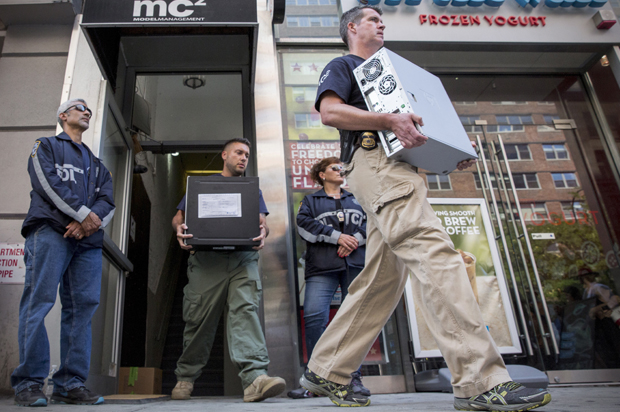Prompted by the federal shutdown of Rentboy.com, a gay male escort website, the New York Times recently ran an opinion piece by Rachel Moran under the headline “Buying Sex Should Not Be Legal.” To be sure, her personal story as a trafficking victim is atrocious and is precisely the kind of sexual exploitation we should be working to end. However, Moran makes a critical conflation: equating sex work with sex trafficking. These are not the same things.
Sex trafficking involves the coercion of people (usually women and girls) into sex work, and often preys upon women in the most vulnerable social positions — those who are marginalized by race, class, gender, and migrant status. Aside from those who profit from this exploitative system, you would be hard-pressed to find anyone who supports sex trafficking. Sex work, by contrast, includes a wide variety of practices, ranging from stripping to prostitution.
Sex work is the central issue with the Rentboy shutdown. And considering the current evidence we have, selling sex should indeed be legalized.
Amnesty International, joined by several gay, lesbian, and transgender rights organizations, recently issued a call—based on extensive research—to decriminalize sex work. In countries around the world workers face threats of police brutality, rape, and even murder. As long as sex work is illegal, sex workers who are assaulted, raped, robbed, blackmailed, or extorted have no place to turn. They have no workplace protections or benefits that many other workers enjoy.
More important, we know that sex workers who work on the streets—the type of work that websites like Rentboy help prevent—face increased risk of violence. In her research on sex work in the San Francisco Bay area, sociologist Elizabeth Bernstein found that those who sold sex via websites or phone services faced far less harassment and violence than those forced to work on the streets. She also found that those working via websites did not feel forced into sex work but rather chose it as a legitimate profession. Granted, the workers who had the privilege to do this type of work were often white and middle-class, while those who worked the streets were more often people of color and of a lower socio-economic status. But legalization offers the possibility of creating a more equal playing field by legitimizing sex work as real work that deserves a living wage, benefits, and workplace protections.
Certainly, there will continue to be people who feel that they have no other choice than to turn to sex work, just as many people feel forced into other undesirable forms of work. For instance, gay and transgender youth forced out of their homes, who account for approximately 40 percent of all homeless youth, sometimes face the choice between sex work and sleeping on the street. We should not criminalize their survival. Rather than turning marginalized people into criminals, we should offer them social services and protections for as long as they engage in sex work, while helping them get out of the profession if they wish.
But we must also recognize that some people choose to be sex workers, and they are no less deserving of workplace protections than anyone else. Some advocate a policy decriminalizing those who sell sex (whom they view uniformly as victims) and criminalizing the purchase or purchaser of sex. Yet these policies continue to stigmatize sex work, and, as Bernstein’s research also shows, most likely result in very similar outcomes as outright criminalization, such as driving sex work underground where workers are more vulnerable.
What we need instead is sound policy based on our best empirical research, and part of that policy must include basic worker protections for sex workers and the right to bodily autonomy for everyone. But more than that, we must work to end the stigma surrounding sex work and, indeed, sex in general.

